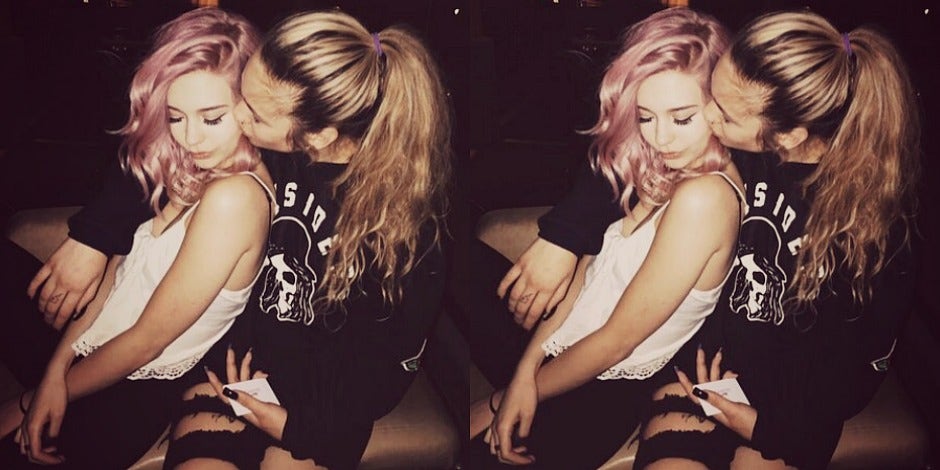Why Jealousy Is Such A HUGE Problem Among Lesbians
Are you a jealous lesbian?
 WeHeartIt
WeHeartIt Let's discuss the green-eyed, insidious relationship monster known as jealousy. It can be a real problem for many lesbians or LGBTQ couples. There are varying degrees of jealousy; some are healthy, but others can lead you down the road to disappointment and singledom.
Maybe it's the gentle familiarity your girlfriend and her best friend share, the curious spark in her eyes when she looks at other women, or the glowing admiration she oozes when speaking about her co-worker. Whatever the trigger might be, your eyes grow greener with jealousy until you are a dish of wobbly, lime green jelly. Does this scenario ring true?
We all feel jealous from time to time, but do you find your thoughts, emotions, and behavior engulfed by feelings of anger, frustration, and yearning for your partner's attention?
Many times, people feel this way when they fear that their partner will leave them for someone else. Jealousy can turn strong relationships into fragmented unions, especially when "normal" jealousy crosses over into an unhealthy territory.
As lesbians, we have an extra layer of jealousy many straight couples don't have to deal with. Isn't it great to have yet another layer of complicity as a member of this little lesbian club? For instance, what happens when we want "girl time" without our partner?
Lesbians often struggle not to merge lives with their partner. Wanting time away from your LGBT partner is natural, healthy and important to sustain a balanced relationship. Many women struggle with ways to walk the tightrope when telling their partner that they want time with the "girls" — but not their girlfriend.
Lesbians are a small community, which means we have more history (read: romantic encounters) with a smaller group of people. At times it's hard to go out and not see someone who we used to date or have a romantic relationship with.
Additionally, women are typically more concerned with emotional infidelity than men. With two women both on high alert for emotional infidelity, we exponentially increase our chances of being jealous of our partner's close emotional bonds.
All of these little extras can just add more to the pot, highlighting the importance of keeping an unhealthy jealousy at bay.
For you analytic types who like to understand the "why" and the function of things, this part is for you. Have you ever wondered "what's the point of jealousy"? From an evolutionary standpoint, jealousy has functioned as a mate-protective strategy. Jealousy produces controlling, coercive and protective behavior to reduce promiscuity with competing mates.
How does this apply today? Surprise! Jealousy still produces controlling, coercive, and protective behaviors over one's partner.
The goal here is to avoid acting on feelings and instead take the cue to open a line of communication with defined boundaries. There is a large difference between healthy, protective behaviors and aggressive, controlling behavior.

